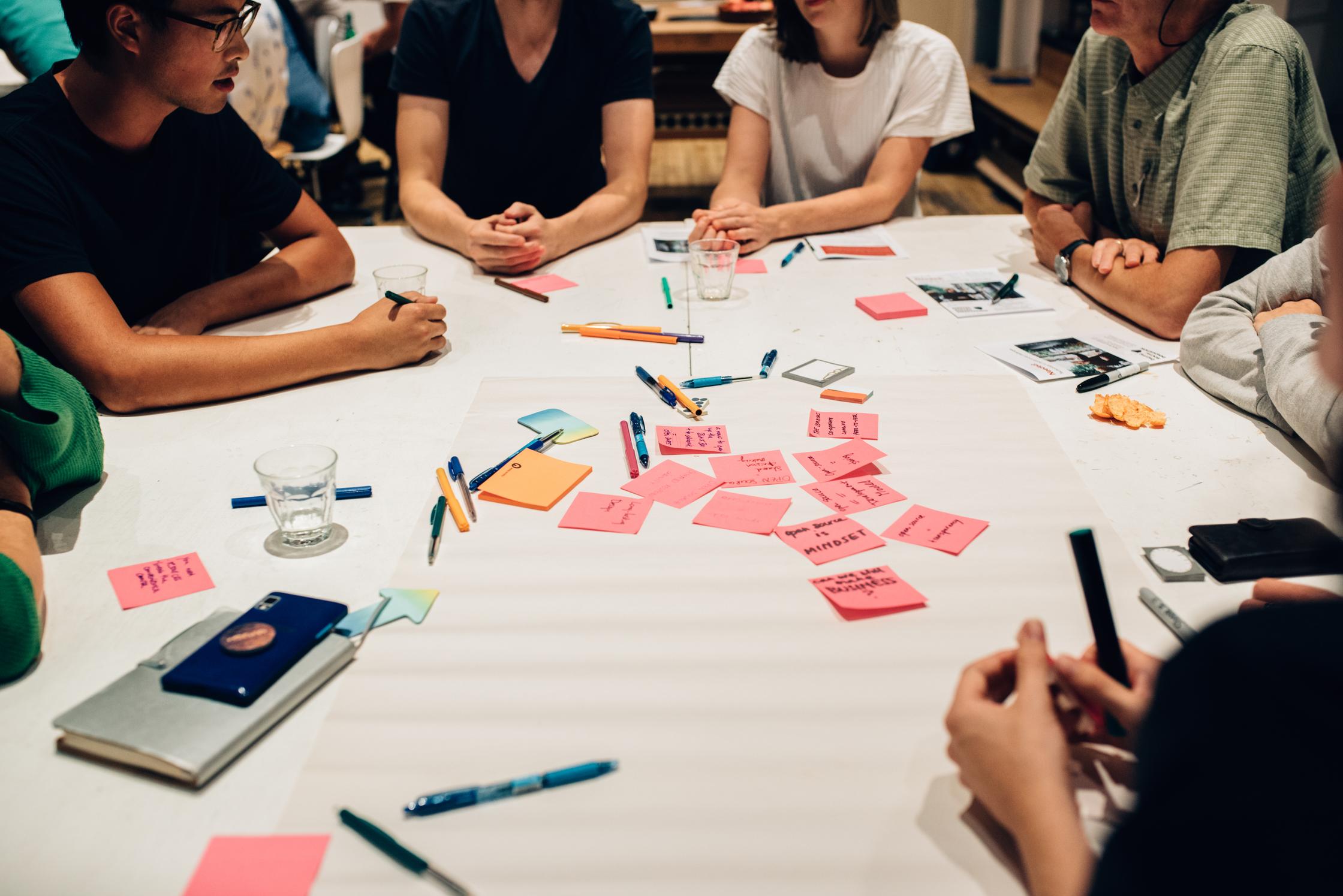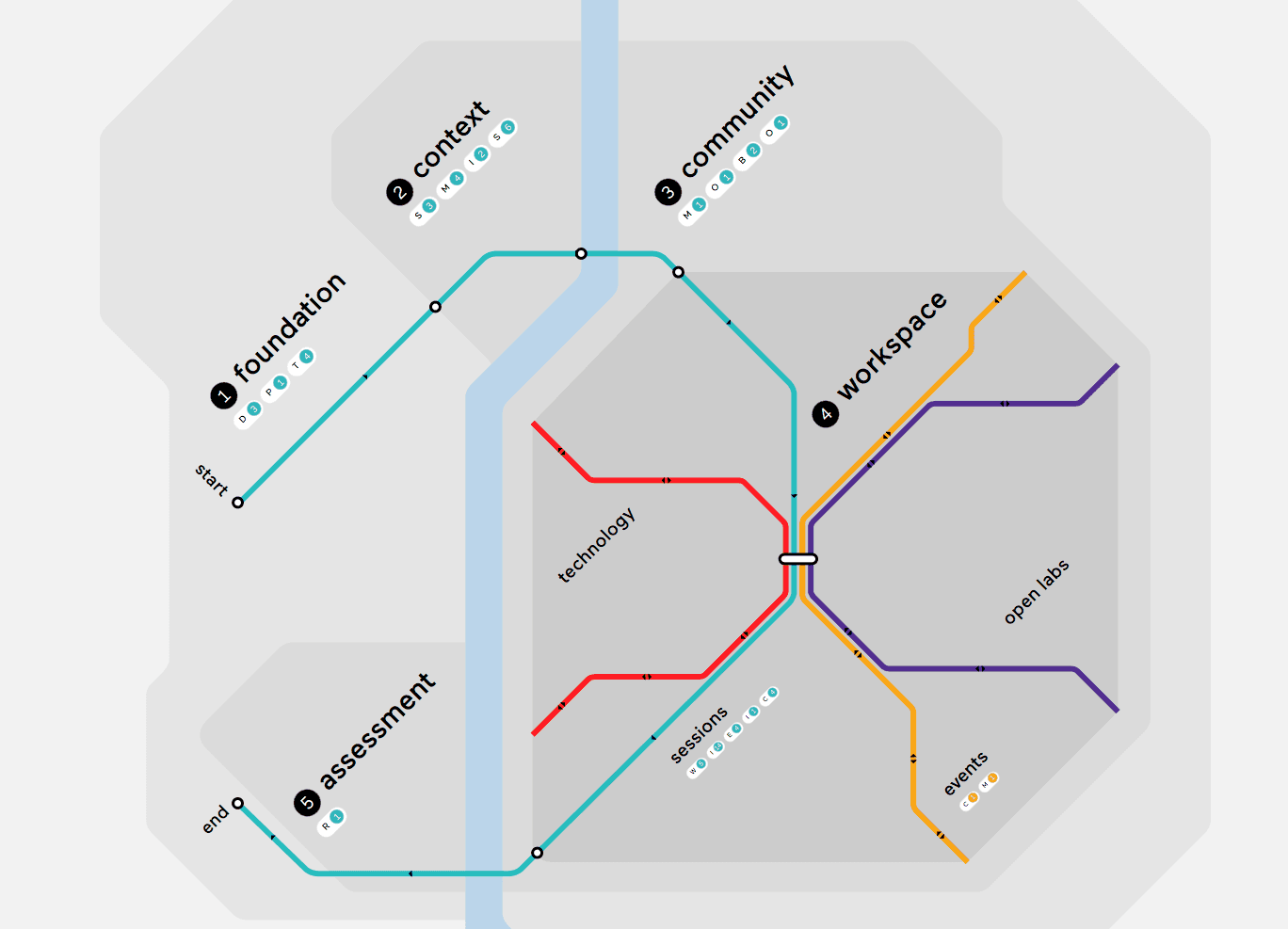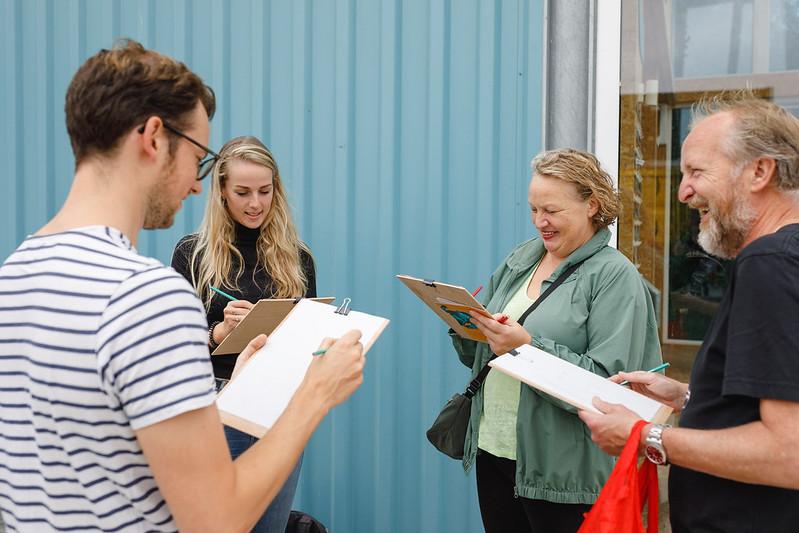Co-creation is an important process for Waag. In all of our projects, we work together with various stakeholders, from end-users and problem-solvers to artists and content experts. From this experience, we've developed the Co-creation Navigator, a new online resource that guides you through the different stages of co-creation. The navigator leads you to the tools and methods that will assist you in co-creation from preparation to execution.
The Co-creation Navigator is not only an open collection of methods, but also provides an overview of the entire process of introducing and using co-creation in your own practice. You will learn how to create a good foundation, build a team, what the right mindset is, and how you can involve the right people. To better visualise the process, the Co-creation Navigator uses the metaphor of a subway map to guide you on your journey through the various 'stations' of co-creation.
The Co-creation Navigator has already been made available as a beta since the spring of 2018 and is currently being used by our project partners in the Horizon2020 projects BigPicnic, Cities-4-People and Mobility Urban Values. We involve these partners in the development of both content and form at each stage. They supplement methods, test usability, and share their experiences with the aim of creating a community of co-creators. In this way, the Navigator is not only a co-creation source, but it is also in a state of constant co-creation.
During three Open Thursdays at Waag in October and November, we will open up the development of the Navigator even further. At these sessions, we hope to enter into discussions with other co-creators about their ways of working and their possible contributions to this open resource.
Are you experienced with co-creation and interested in joining us? Join us!


